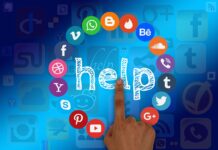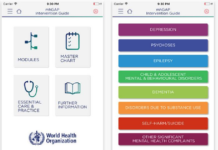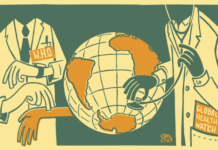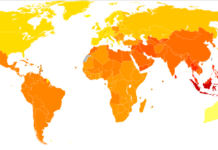Scales Assessing Child and Adolescent Psychopathology Lack Cross-Cultural Validity
Researchers find few existing "psychopathology scales" are appropriate for global utilization.
Psychologists for Social Responsibility Oppose APA CEO Search
Psychologists for Social Responsibility (PsySR), one of the groups that led the push for changes to the American Psychological Association’s (APA) collusion in the CIA torture program (as detailed in the Hoffman report), is again calling on the APA for a change in policies.
Researchers Push for Transparency of Mental Health Outcome Data
A new analysis of UK mental health data suggests the way organizations deliver mental health services can alter patient outcomes.
Sense of Purpose Reduces Negative Effects of Social Media Use
New research shows that having a strong sense of personal meaning and purpose can reduce the negative effects of social media use.
United Nations Report Calls for Revolution in Mental Health Care
In a new report, the United Nations Special Rapporteur on the right to health, Dr. Dainius Pūras, calls for a move away from the biomedical model and “excessive use of psychotropic medicines.”
Food Insecurity Linked to Mental Health Globally
Global analysis of 149 countries finds food insecurity is associated with poorer mental health.
Less Than Half of Clinical Trials Comply with Legislation to Accurately Report Results
A new study finds that sponsors of clinical trials in the EU continue to fail at reporting their results as required by recent legislation.
New Book Deconstructs Ideology of Cognitive Therapy
CBT forwards a hyper-rational perspective of human suffering that complements a managerialist culture of efficiency and institutionalization in the Western world.
Economic Policy Uncertainty Linked to Higher Suicide Rates in Men
A new study, published in Social Indicators Research, investigates the association between economic policy uncertainty and suicide rates in the US.
Researchers Critique WHO Mental Health Technology
Researchers critically examine the underlying assumptions and implications of a new WHO mental health technology designed to streamline psychiatric assessment internationally.
Those at High Risk for Psychosis More Likely From Deprived Neighborhoods
A recent study published in Schizophrenia Research examines the incidence individuals deemed “Ultra High-Risk” (UHR) for psychosis and their neighborhood of residence
“Maybe Companies Should Chill on Employee-Happiness Programs”
Will Davies, author of The Happiness Industry, does a Q&A on the ways companies are misusing psychological research on happiness. “I think that one thing that often gets lost in lots of the discussions of happiness (especially in the business world) is the possibility that happy work may mean less work.”
“Medical Research: The Dangers to the Human Subjects”
Marcia Angell in the New York Review of Books writes about the inherent conflict in clinical trials between “the search for scientific answers," on one hand, and “the rights and welfare of human subjects,” on the other.
Current Immigration Policies Create Mental Health Vulnerabilities for Families
Researchers investigate the impact of immigration policies on the mental health of arriving Mexican and Central American immigrants.
Connections Between Climate Change Concerns, Mental Health, and Pro-Environmental Actions
Concerns about the impact of climate change on animals and nature results in more effective coping to reduce hopelessness about climate change and promotes pro-environmental behaviors.
Experts Raise Ethical Concerns About Machine Learning in Medicine
The use of machine learning algorithms (known as artificial intelligence) in the medical field raises a slew of ethical concerns.
When Psychologists Deny Guantanamo Torture
Psychologist Roy Eidelson comments on the Society for Military Psychology’s criticism of the Hoffman report, which exposed the collusion between the APA and the CIA’s torture program. He writes, “the leaders of APA’s military psychology division have offered a very dark vision for the profession of psychology – a vision that we must reject, both individually and institutionally.”
Challenging the Ongoing ICD 10 Revision: How You Can Help
Mental health policy does not sound exciting. It is - you’ll just have to take my word for it-, but even if you don’t, you might agree with me that it’s crucial. Mental health policy shapes mental health legislation, and mental health legislation shapes issues such as consent, access, equal opportunities and de-institutionalisation, to name but a few. Influencing policy is key to reframing the debate around mental health, and changing the reality on the ground for people with lived experience. With this in mind, here is an introduction to Mental Health Europe’s work on the revisions to ICD 10, and a call to action, for you to get directly involved in this international debate.
How Victimization Affects Political Engagement in Adolescence
Study examines relationships between experiences of victimization, beliefs in government, and political participation among 12th grade students
Bringing Structural Competency to Global Mental Health
Structural competency is put forth as a framework that addresses social and structural determinants in global mental health.
Targeting Hypocrisy Reduces Islamophobia and Collective Blame of Muslims
Interventions calling attention to participants’ hypocrisy proved effective in reducing Islamophobia and collective blame of Muslims for individual acts of violence.
Social Adversity and Crime Victimization Increase Risk of Psychotic Experiences Five Fold
Researchers parse out factors within urbanicity that leads to risk for psychotic experiences.
Gallup: “Americans’ Views of Pharmaceutical Industry Take a Tumble”
“In Gallup's annual measure of 25 major U.S. business sectors, the percentage of Americans with a positive view of the pharmaceutical industry dropped from 40% in 2014 to 35% this year, while the percentage with a negative view rose from 36% to 43%.”
International Study Examines Environmental Factors Associated with Psychosis
Study finds the incidence of “psychosis” to vary by person and place, corresponding to factors such as race, ethnicity, age, and environment.
“Study Links Mobile Device Addiction to Depression and Anxiety”
A study published in the journal Computers in Human Behavior found that addictions to mobile devices are linked to anxiety and depression in college students....



























